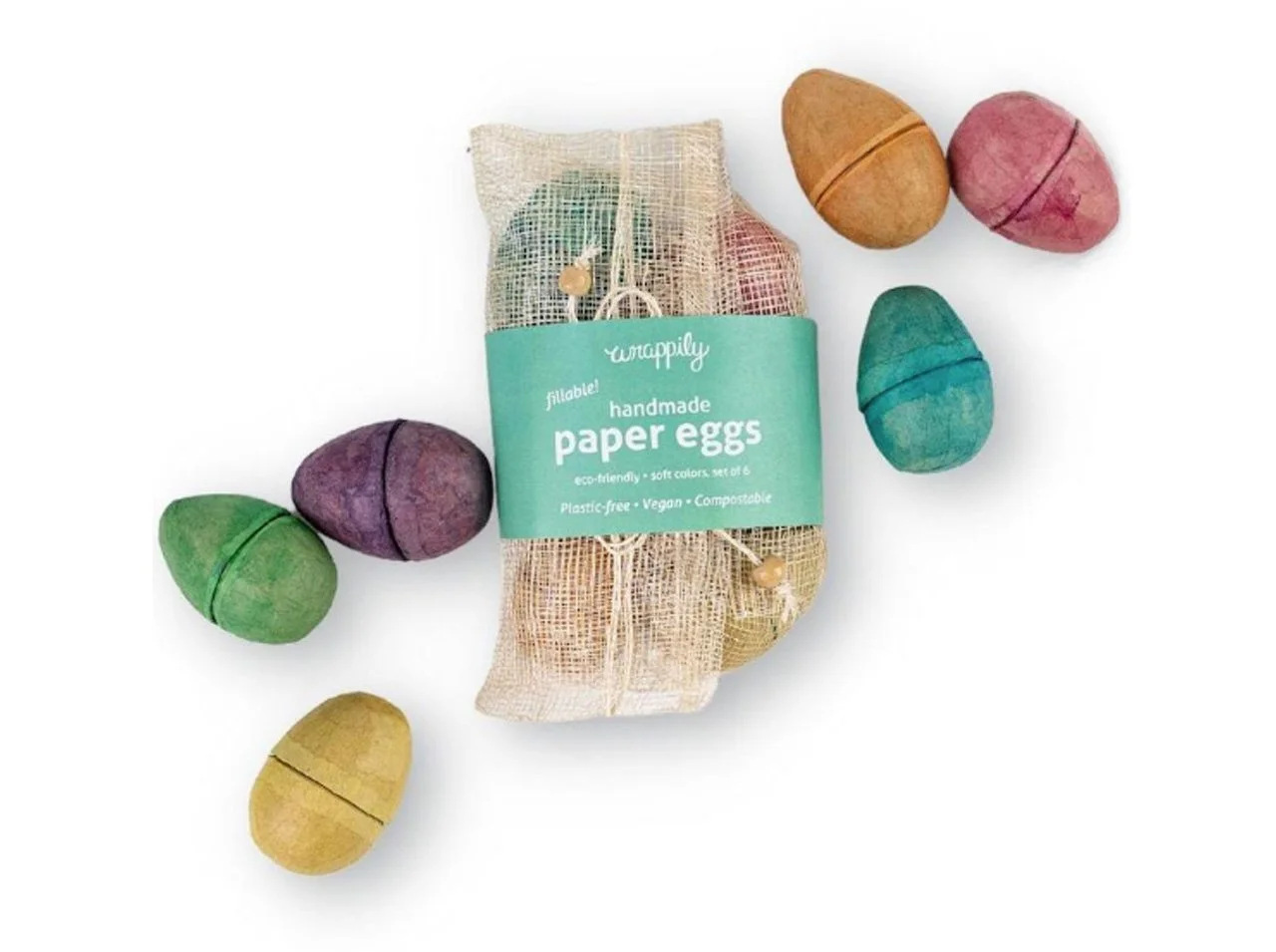5 Tips for an Environmentally Friendly Easter
By the Good Ancestor Team | Read time 3 min
This year Easter and Earth day are in the same week! What better way to celebrate than to make some small yet impactful changes to your Easter celebration!
Swap out the plastic eggs.
Single use plastic is not so great for the environment and a bunch of Easter eggs every year just end up in the landfill. If you do have plastic eggs, opt for the recycled ones and make sure to reuse them year after year, but also consider these wood fillable eggs or paper based ones.
Handmade Paper Fillable Eggs
Wood Fillable Eggs
2. Ditch the synthetic dyes.
The synthetic pigments found in store bought Easter egg kits are petroleum based and are processed in ways that contribute to air and water pollution, but luckily we have a handy guide to create natural dyes with food scraps. You can use red onions skins, blueberries, and carrot tops to make beautiful dyes for your Easter eggs. Don’t forget to get some eggs from a local farmer at the market too!
Egg Coloring Kit
by Eco Kids for Crate & Kids
3. Buy or reuse a natural fiber Easter basket.
We have a ton of adorable options big and small on our Easter gift guide, but an even more sustainable way would be to check out your local thrift store for a cute basket. There are always so many unique baskets, buckets, pots, and bins that you can up-cycle for your Easter needs!
Handmade Rattan Baskets
by Olli Ella
4. Replace the synthetic grass.
Again, more plastic is no bueno! And considering the plastic grass is only used for a base in Easter baskets, there are so many more beautiful options that function the same way. Try shredding old wrapping paper, using natural dried grass, and even preserved reindeer moss! After your celebrations you can reuse these materials in your garden or put them into your compost bin.
Natural Easter Grass
by Terrain
Preserved Green Reindeer Moss
by Terrain
5. Consider gifting seed packets and grow kits instead of candy.
During egg hunts, kids can accumulate so much candy that they (or us adults) don’t end up eating, so we like to mix it up by offering fun activity based options like garden kits and seeds. It’s a great way to get involved in the garden and get a head start on your summer and fall veggies! But for those who aren’t ready to give up their annual spring treats, opt for some fair trade chocolate!
Edible Flower Seeds








